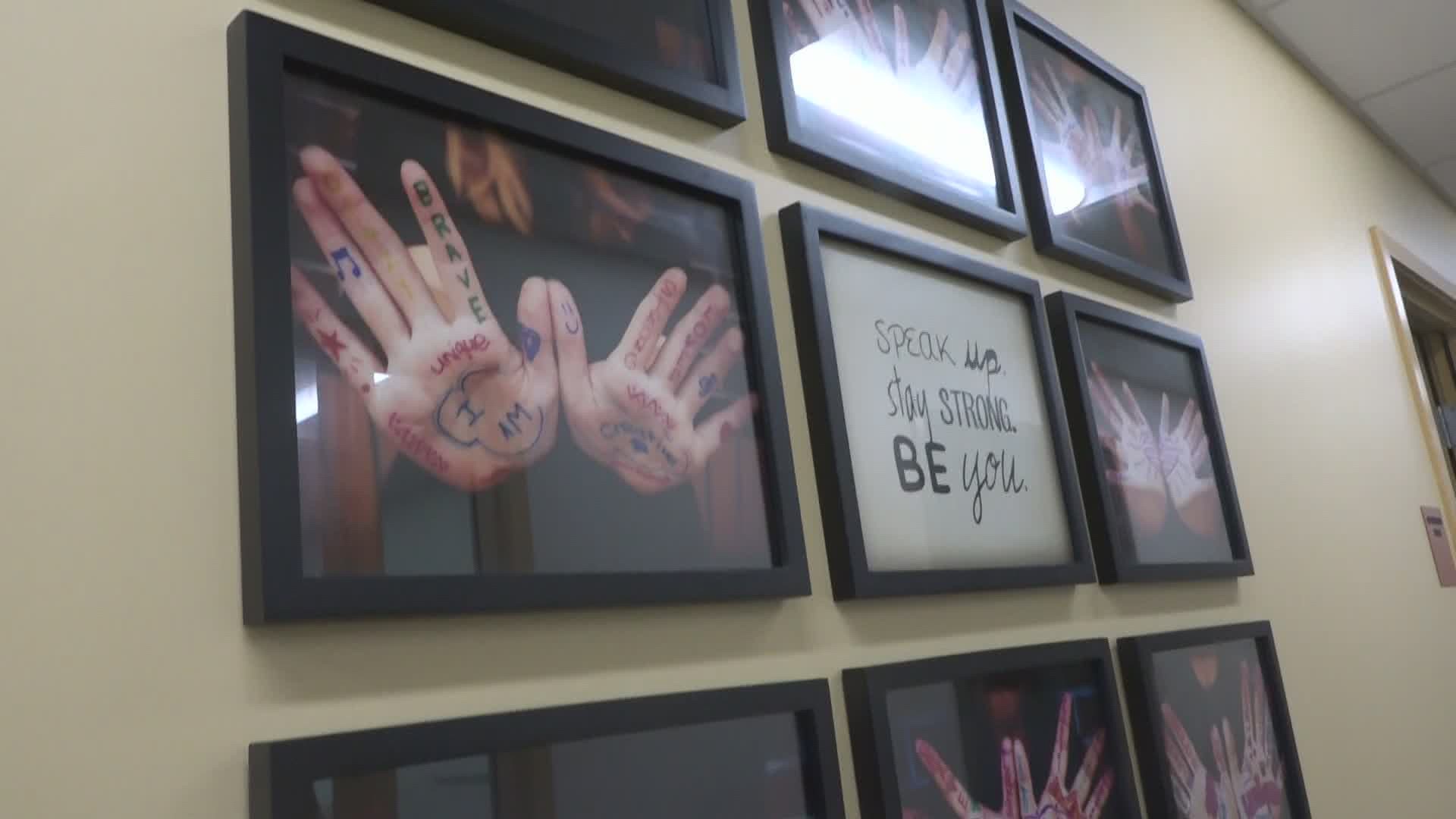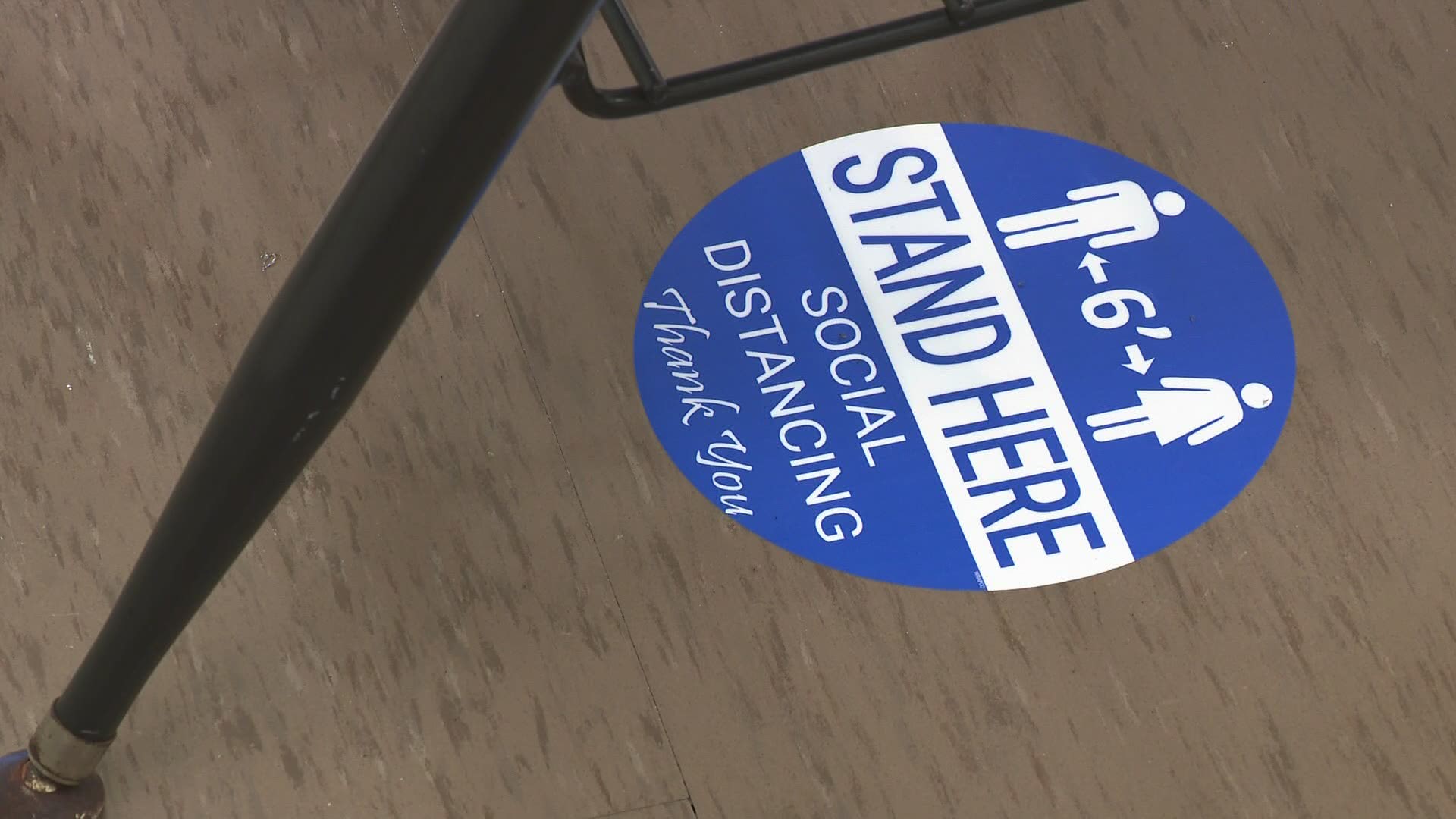HOLLAND, Mich. — The Children's Advocacy Center (CAC) of Ottawa County is arming the community with awareness and education on child trafficking.
In addition to participating in local events this month, the center has been pumping out information onto its social media sites, educating the public about increased risk amid COVID-19.
"Human trafficking is still an issue; It's a really complex issue. It always has been, but with the COVID-19 pandemic things are changing, and the people that were considered vulnerable before have an even increased level of vulnerability," Ashleigh Shea, a forensic interviewer for CAC, said.
With many classes now being held online, Shea explains it has given online predators more access than ever to those they prey on.
"Students may have had resources and services at school. They had access to mandated reporters…people that are at home all day every day are online, and predators are using the internet to seek out these victims," Shea said, who also sits on the Ottawa County Human Trafficking Taskforce.
Shea said there are a number of ways to spot signs of children in need:
1. Are they starting to withdraw or isolate?
2. Is there a pattern of scripted responses?
3. Are they having trouble keeping their stories straight?
4. Do they appear malnourished?
5. Are they having issues with substance abuse?
6. Are they showing struggles with their mental health?
"The pandemic makes it trickier because those are things that you might see because of the pandemic, but those are also signs and symptoms of trafficking," Shea explained.
She and her team are also trying to combat the spread of misinformation over human trafficking online, such as conspiracy theories and false data.
"There’s a widespread concern that children who are wearing mask are more vulnerable to trafficking and I’m not going to say that that’s something that doesn’t happen but it’s very, very, very unlikely. Traffickers are very manipulative they are very good at what they do and they are targeting people that are more vulnerable and in poverty,” Shea said.
The center is encouraging social media users to do their research before sharing or spreading something they see online, noting that often times misinformation leads to a waste of resources while real children are still at risk.
"The misinformation that a child can be kidnapped out of a parking lot or snatched up and pulled away from somebody, that’s not typical for how trafficking occurs. The misinformation that is spreading is creating panic and its creating fear and it’s just simply untrue," she said.
But while Shea wants more people to take responsibility of what they share online, she also says to use your gut if you feel like a situation is off.
"Report it. Call that hotline. It's better to by hyper-aware than ignore something," she said.
National Human Trafficking Hotline: 1 (888) 373-7888
RELATED VIDEO:
►Make it easy to keep up to date with more stories like this. Download the 13 ON YOUR SIDE app now.
Have a news tip? Email news@13onyourside.com, visit our Facebook page or Twitter. Subscribe to our YouTube channel.



